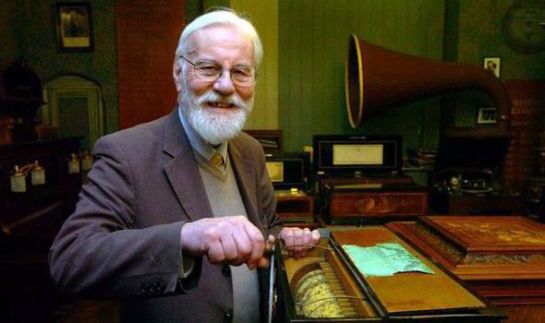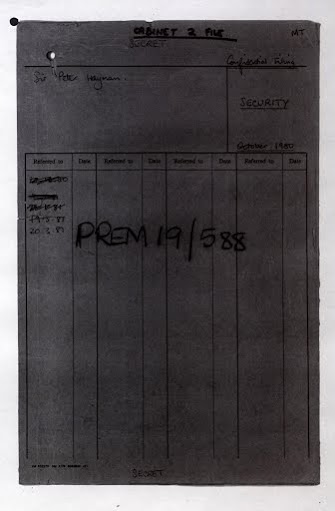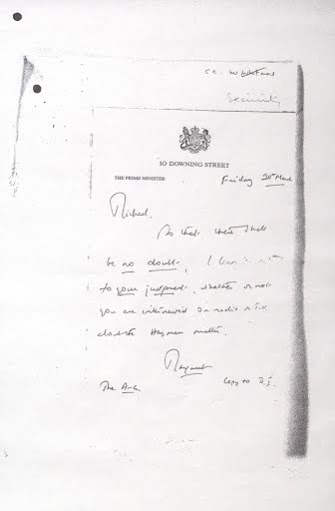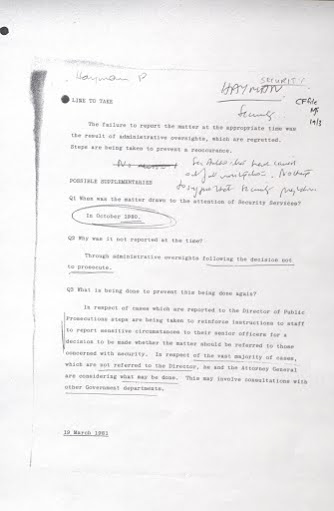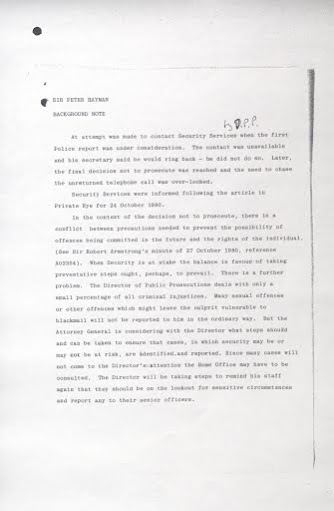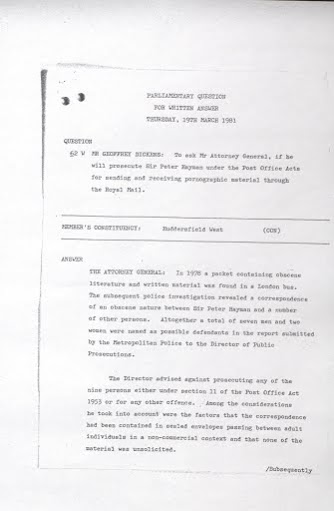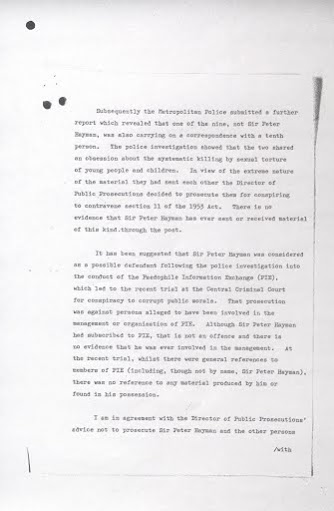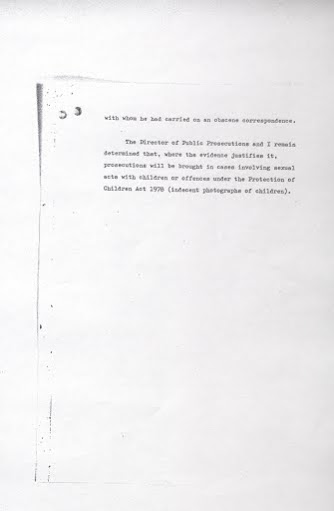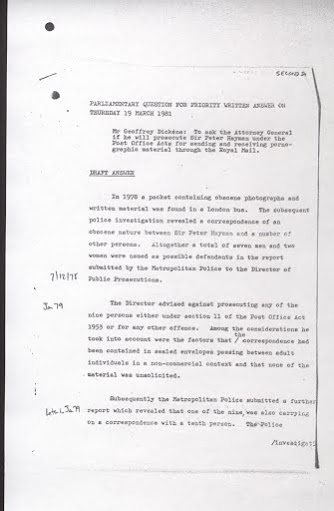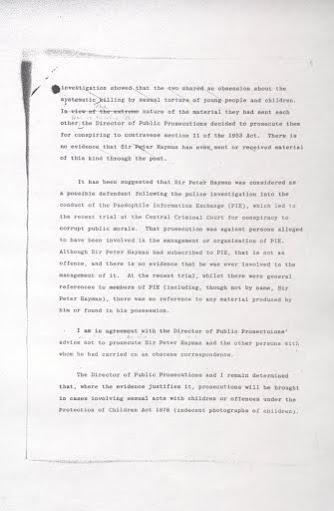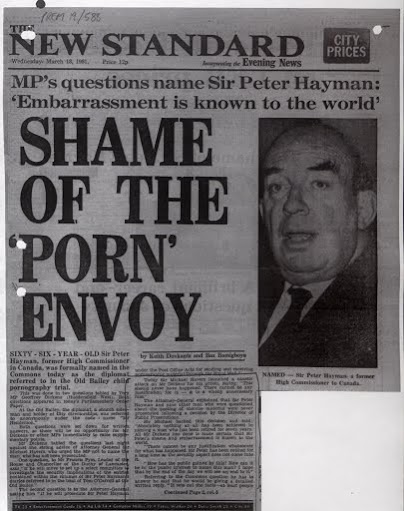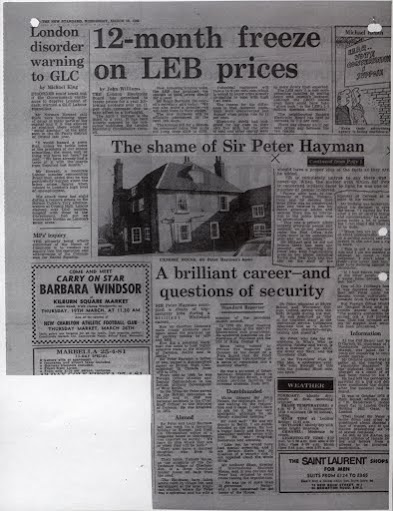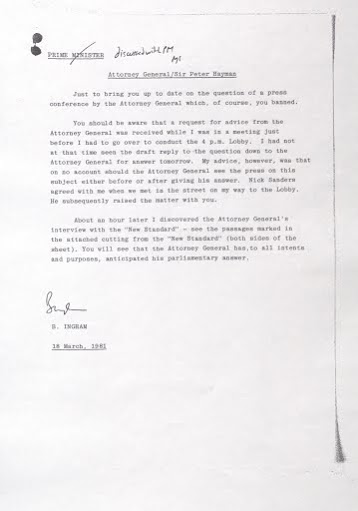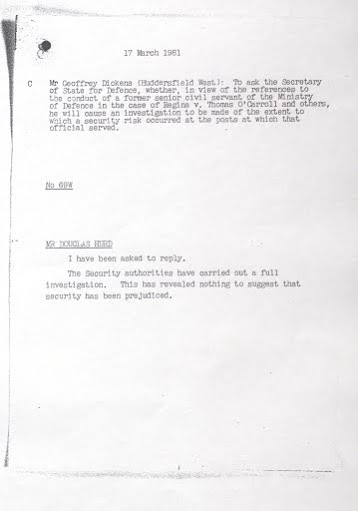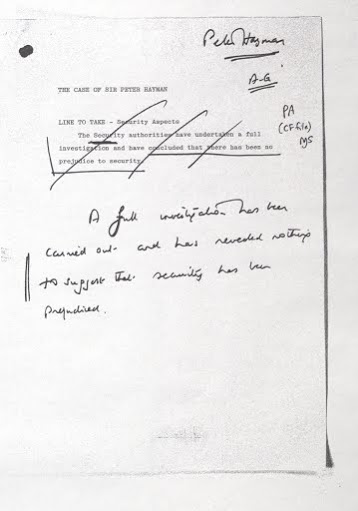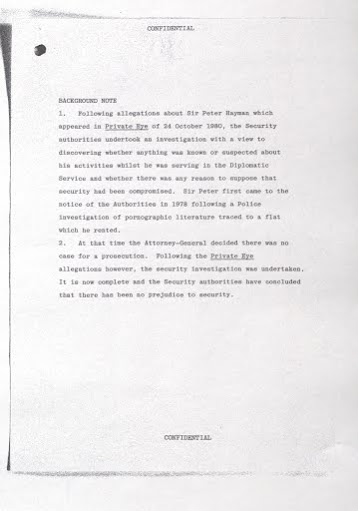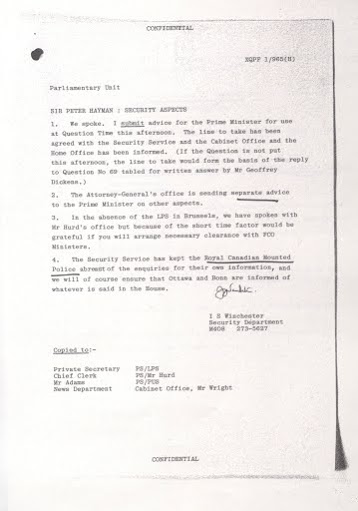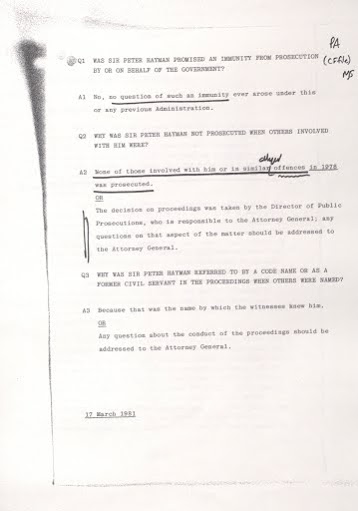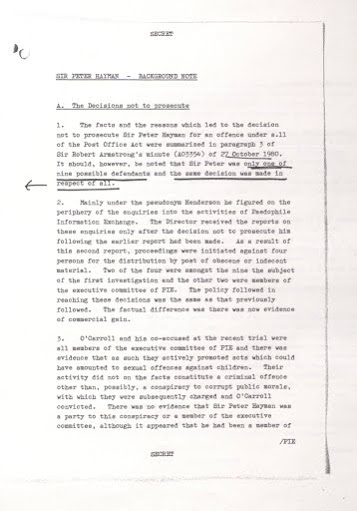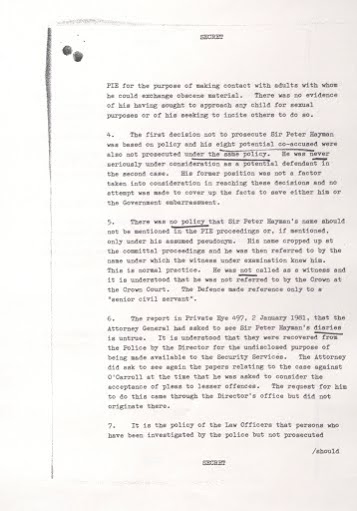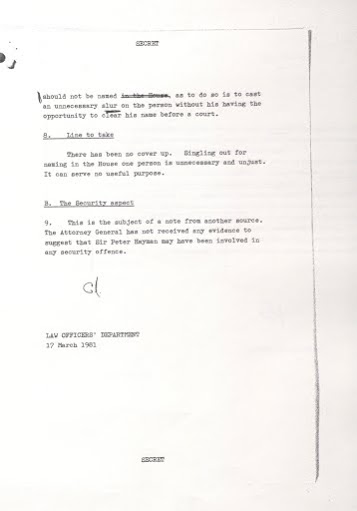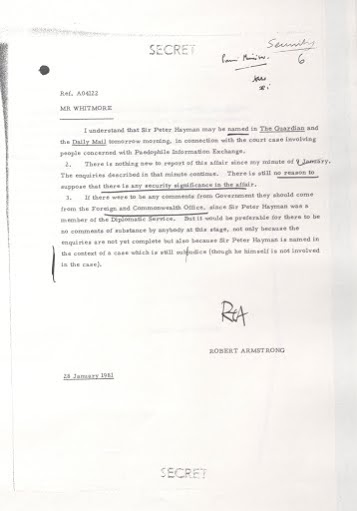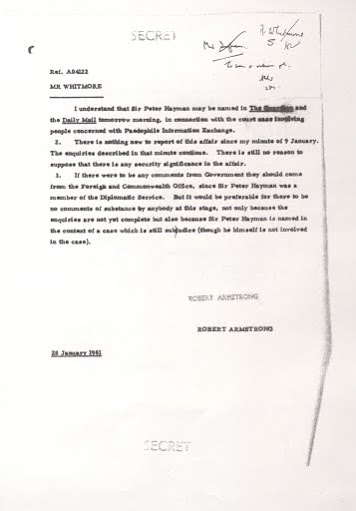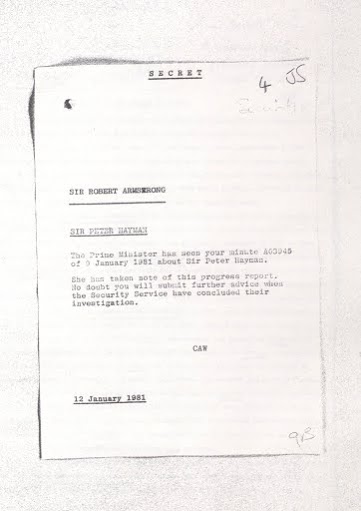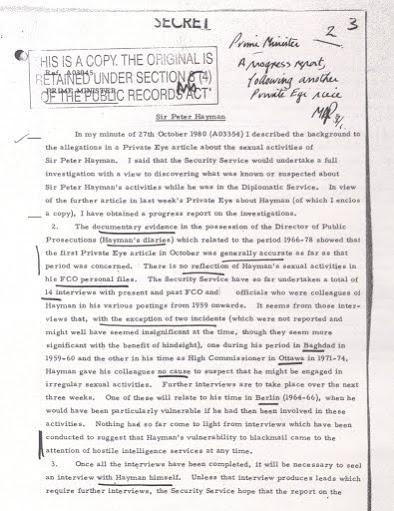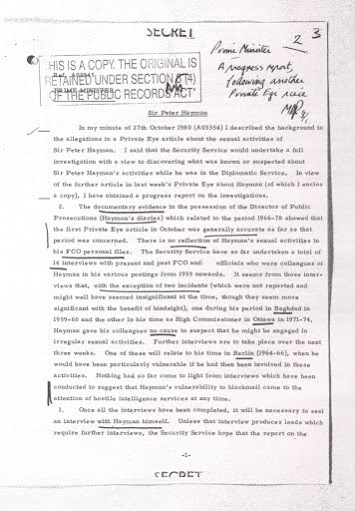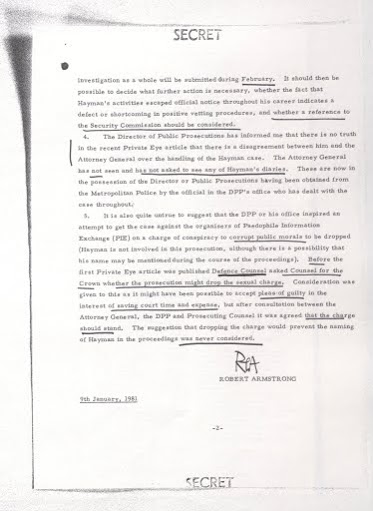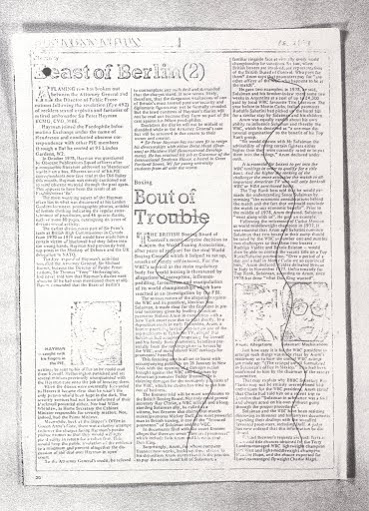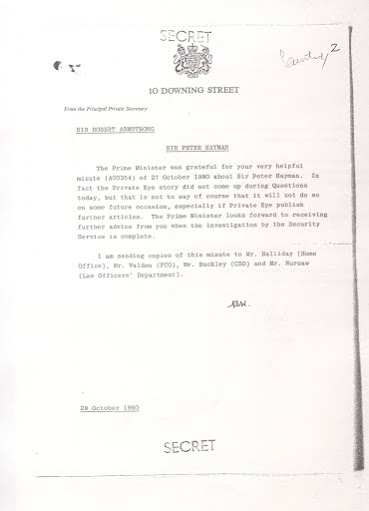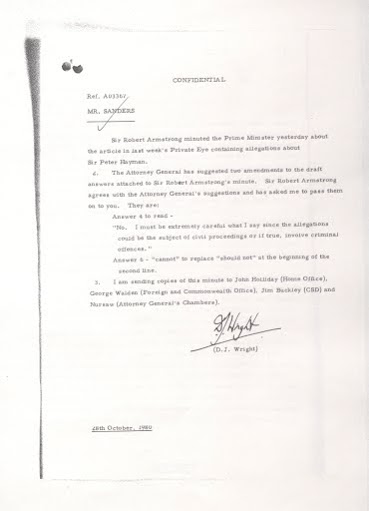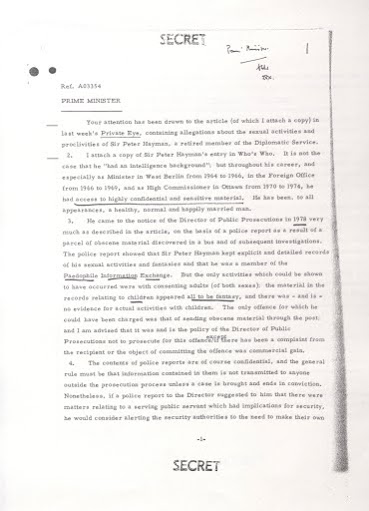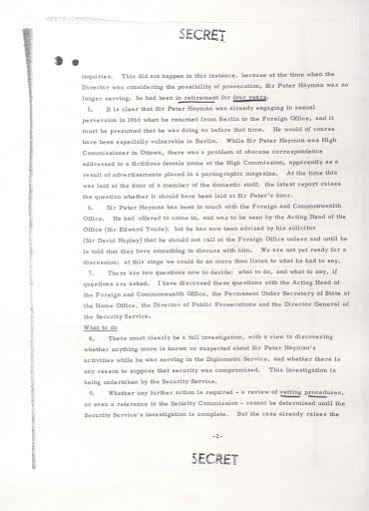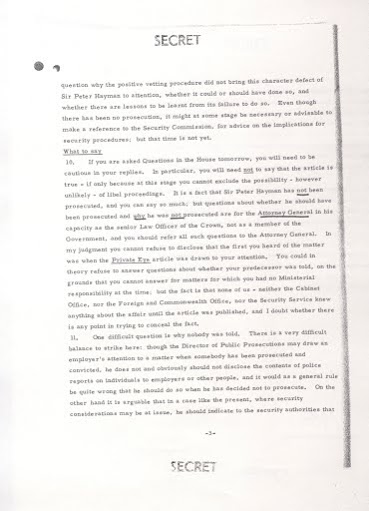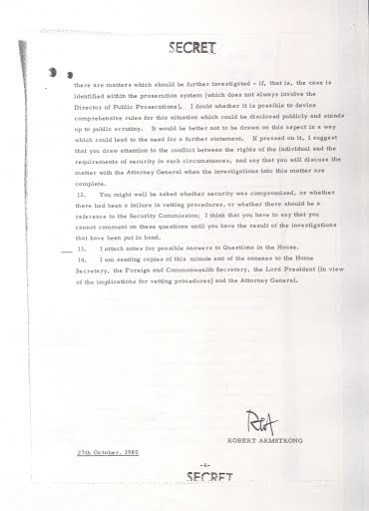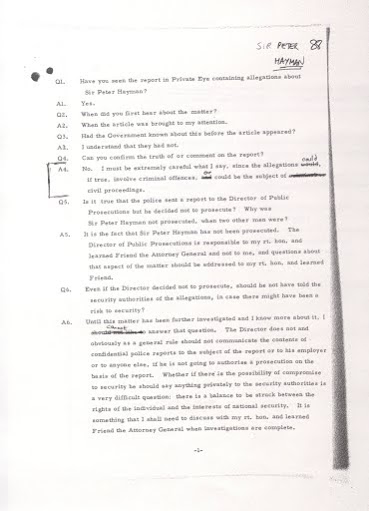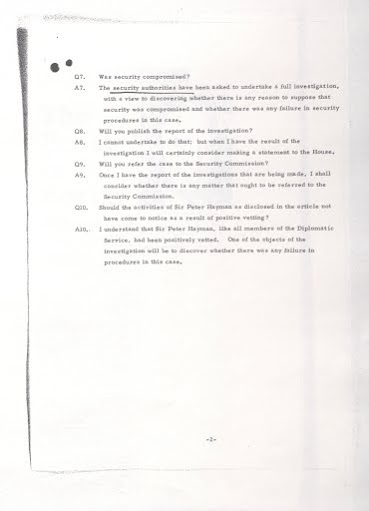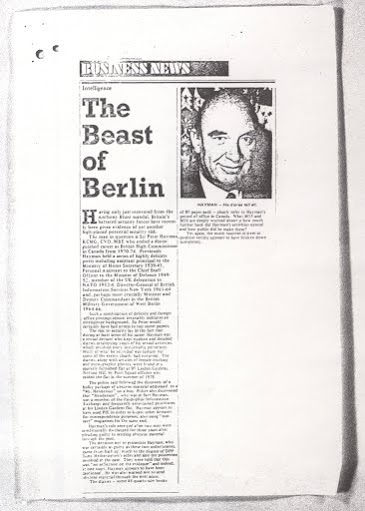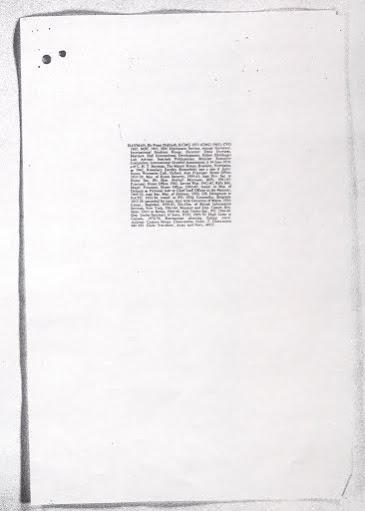PIE (Paedophile Information Exchange)
Tom O’Carroll speaks at LSE on Children’s Rights (7 March 1980)

Gay News No. 187 20 March – 2 April 1980, p.5 “Children’s Rights” by Brian Deer
Editor resigns as University stops latest issue of his paper (05.11.1977)
CHE Chairman acts to quieten PIE critics (05.11.1977)
PIE Meeting that the National Front tried to silence (06.10.1977)
The PIE Affair (14.09.1977)
On 11 July 1977 Gay News was defeated in court by Mary Whitehouse’s private prosecution. Gay News was in the process of appealing when it printed the following Editorial repudiating its former stance on PIE. The reaction amongst the paedophile and pro-paedophile rights community who had campaigned for the legal defence of Gay News and its editor Denis Lemon was predictably one of betrayal.
Gay News No 126 [14 – 21 September 1977]
Gay News condemned PIE’s 1975 submission to the Criminal Law Reform Committee.
“We now claim, equally calmly and rationally, that PIE deserves no support from the gay movement — indeed that it is diametrically opposed to the aspirations of both the gay movement and the women’s movement.
The deceptively simple question which non-paedophiles have always needed answering is this. Can there exist, between an adult and a minor, a reciprocal sexual relationship which involves no exploitation of adult’s authority — a mutual relationship where each party is aware of what the experience means to the other, and where concern for the other is as important an element as sexual attraction?
Paedophiles say that such relationships can and do exist, and it is reasonable therefore to let them present their evidence.
That however does not appear to be PIE’s position. In a short document published as evidence to the Criminal Law Revision Committee, PIE urged that sex between adults and minor should not be dealt with by the criminal law but by civil procedures. More harm is done to a child by police, parent and teacher interrogation in preparing evidence for a criminal prosecution than could ever have been done by the original sexual relationship they argue.
What should happen is that those with an interest in the child’s well-being should be entitled to apply for an injunction to stop sex taking place in future between the adult and the child.
At the time it was published, we judged from its length and presentation that the document had been compiled in haste and without great thought, and its compilers had merely overlooked the problems raised by their proposed injunction system. Did they really expect a court to issue an injunction against a man (for man it usually is) without it having been proved that sex had taken place between the man and the child? And would the child therefore no t be interrogated in precisely the same way as before? The system requires that sex should already have taken place. How young does a child have to be before sex with an adult is precluded entirely? 12? 8? No mention of any age.
It now seems that our judgment was wrong. Later events, suggest that PIE knew precisely what it was saying — and the the only real change proposed was that the adult should be able to have sex with a child of any age without there being any consequences at law.
The Chairman of PIE told the Daily Mirror: “There would be no penalty for a paedophile having sex with a child under three years old. But he would probably be prevented from it by a system of injunctions which we would like to see brought in.”

Readers’ responses to Gay News editorial ‘The PIE Affair’ in Gay News No 127 [22 Sept – 5 October 1977]
‘Over-Dramatised Report’ from Graham Wilkinson, Hove, Essex [CHE’s organiser of the Nottingham Conference which caused controversy over Dr Brongersma delivering a speech and a workshop scheduled to discuss Paedophilia]
‘Smug, Self-Righteous’ from Charles Napier, Treasurer of PIE
‘False Sentiment’ from Patrick Wilson, Kent is concerned about PIE’s exploitative lack of regard for the inequality of infancy in adult-child sexual “relationships”
‘Back Stabbing’ from Keith Hose, ex-Chairman on behalf of PIE
‘Straight Paper’ from Terry Waller, N4
‘In Perspective’ from Ian Harvey, W2
‘Lack of Sympathy’ from Tony Deane, N4
‘Nothing Sacrosanct’ from Micky Burbidge, N19 [co-drafter of PIE’s submission to the Criminal Law Reform Committee alongside Keith Hose, Chairman]
‘Slippery Slope’ from Julian Carter, Dorset – a lone voice “Whatever next for CHE – necrophilia perhaps?”
‘Personal Courage’ from Keith Spence, SW4



Readers’ responses to Gay News editorial ‘The PIE Affair’ in Gay News No 128 [22 Sept – 5 October 1977]
‘Mob of Harpies’ from Don Street, London W11 who consumed with guilt at his own cowardice in not confronting the National Front in solidarity with PIE now urges “But if we do nothing, these evil forces will grow” — the evil forces, in his view, are those opposing PIE such as Mary Whitehouse’s NVLA and the Festival of Light.
‘Problem Unanswered’ by Michael Walker of SW1, a PIE member
‘Restrict CHE platforms’ by David A Spencer, Frenchwood, Preston
‘Squalid Level’ from Bill Thornycroft, London SE27: “The victims are not only the adults who realise they have sexual feelings for children but children at large. At present children suffer extreme oppression — any express by children that is seen by adults (especially parents, teachers, police) as being sexual, is slapped down unmercifully.”
‘Not stampeded’ by David M Dancer, Chichester W Sussex
‘Paranoia & Spite’ by Nicholas J Ferguson, London SE24 (formerly of Paedophile Action for Liberation – PAL until merged with PIE in February 1977)
‘Disappointing Response’ by J A Davidson, Herts
‘PIE – Go it Alone’ from Ms PB, Dorset
Keith Harding, Leon Brittan, Cyril Smith and Jeremy Thorpe
Comment from Peter McKelvie:
“I am perplexed by the complete wall of silence in the media following the publication of this story.
The former Liberal leader Jeremy Thorpe would also drop by along with key members of the vile Paedophile Information Exchange Steven Adrian Smith and Tom O’Carroll.
A PIE list seized in 1984 records Harding, who died from cancer last year aged 82, as member 329 and his address as Hornsey Road, Holloway, north London.
He is understood to have kept hidden a list of more than 1,000 PIE members with prominent names including top politicians from the Thatcher era.
“Then they would then either go up to his office for a private meeting or they’d go out for several hours.”
The former worker added: “The shop had many high profile customers, including the Royals, because we were one of the few antique dealers in the world that specialised in restoring clocks, music boxes and automatons.
“It’s only now, with what I know about Brittan and Smith, and of course Keith, that has made me wonder what they were doing. Jeremy Thorpe too was an occasional visitor.”
It later transpired that he had been convicted of indecent assault against four children aged eight and nine in 1958 when he was a teacher.
He apparently confessed to a friend he had the list of names kept in a safe.
Harding’s civil partner John Ferris, who now runs the museum, said yesterday: “I know nothing of any list. The safe is empty now. Keith never disclosed much about his life in London. I only met him in 1994 and I never knew he was a part of the Paedophile Information Exchange.”
PREM 19/588 SECURITY. Sir Peter Hayman: allegations against former public official of unnatural sexual proclivities; security aspects
Charles Napier: Court of Appeal transcript, December 1995
[1995] EWCA Crim J1208-8
IN THE COURT OF APPEAL CRIMINAL DIVISION
No: 95/5861/Z4
Royal Courts of Justice
Strand
London WC2
Friday 8th December 1995
Before: Lord Justice Russell Mr Justice Rougier and His Honour Judge Rhys Davies QC (Sitting as a Judge of the Court of Appeal)
Regina
v.
Charles Scott Napier
MISS Z SMITH appeared on behalf of the Appellant
MR B KELLY appeared on behalf of the Crown
(Computer Aided Transcript of the Stenograph Notes of John Larking, Chancery House, Chancery Lane, London WC2 Telephone No: 071 404 7464 Official Shorthand Writers to the Court)
JUDGMENT
(As Approved by the Court)
Transcript [1995] EWCA Crim J1208-8 2
Friday 8th December 1995
JUDGMENT
MR JUSTICE ROUGIER: On 14th August 1995 at Kingston-upon-Thames Crown Court, the applicant was convicted on two counts of indecent assault upon a male person, and was sentenced to 9 months’ imprisonment concurrent on each.
His application for leave to appeal against that conviction has been referred to the Full Court by the learned Single Judge.
The principal ground of proposed appeal centres around a television programme which was made on the subject of paedophiles in general, and a man called Righton in particular, sometime before the trial of the applicant. It is necessary to set out the dates in some detail. At some stage, we are not told exactly when, but it is in all probability in 1994, the police raided the house of Righton, and they discovered a whole lot of photographs of naked boys, together with letters written by the applicant, which indicated that he too shared Righton’s proclivities and therefore he came under suspicion. At about the same time a documentary was being made by the BBC on the subject of Righton and child abuse, called “Children at Risk”.
The complainant in the applicant’s case, whom we shall refer to as D, made a statement under the Criminal Justice Act implicating the applicant in March 1994. The film was shown on relatively prime time at 8.00 p.m. on 1st June 1994, but it was not until 10th January 1995 that the applicant was arrested and, as already stated, his trial took place in August.
Transcript [1995] EWCA Crim J1208-8 3
By the first two grounds of proposed appeal the complaint is made, baldly, that in the light of that television film a fair trial was not possible, it had been gravely prejudiced, and that the learned judge was wrong in failing to stay the proceedings on the grounds that publicity had rendered a fair trial impossible, all the more so because the prosecution, in the form of the police, had assisted in the adverse publicity. That reference was to the fact that while the film was being made and researches were being done, the Hereford, Worcester and West Midlands police co-operated by passing relevant information to the maker of the film.
In relation to that the learned judge was faced with a problem of some difficulty. There undoubtedly had been a film which had identified the applicant on three occasions. This Court has had the benefit of seeing the relevant extracts. They occupy approximately 9 minutes in all, in a transmission totalling some 55 minutes and undoubtedly the applicant is portrayed as a paedophile. He is indeed referred to as somebody who had been convicted of a paedophilic offence, if there is such a word, which was quite true. There also were photographs of him in the company of young boys in Sweden and there are some extracts from letters which he had written to Righton, describing with almost gloating pederasty the physical appearance and availability of young boys either under his charge or within his influence.
Transcript [1995] EWCA Crim J1208-8 4
The learned judge, in a very careful ruling, marshalled the pros and cons, and having referred to the relevant authorities he noted that the prosecution were not seeking, as part of their case, to adduce evidence concerning the applicant’s involvement in paedophile organisations, it having been alleged in the transmission that at some time he was the treasurer of something called the Paedophile Information Exchange. He noted, as we too have been able to note, that D did not appear on the television programme, he was not named and he made no specific allegation of indecent assault against the applicant. The learned judge correctly squared up to the problem in these words:
“The question I have to resolve is whether there is a real prospect that one or more jurors may have seen and remembered the television programme so far as it relates to the defendant and if so whether, in those circumstances, the defendant could possibly receive a fair trial.”
He noted that it was unsatisfactory that publicity adverse to the defendant was made at a time when there were reasonable grounds to believe that a prosecution was pending or contemplated but that, as my Lord has pointed out, is a disciplinary matter and had nothing to do with the problem which the learned judge had to resolve. He went on to say this:
Transcript [1995] EWCA Crim J1208-8 5
“I have to bear in mind also that the television programme and reports took place some fourteen months ago. I have to consider the likelihood of whether they were seen or remembered by members of the jury and I also have to consider what safeguards or precautions might usefully be taken in respect of the jury.
At the end of the day I have come to the conclusion that, provided jurors confirm that they neither have any knowledge of this defendant nor any other prosecution witness and provided they are given an appropriate warning in the summing-up in accordance with the state of the evidence as it develops to the effect that they must consider only the evidence heard in Court and nothing extraneous should be taken into consideration, then in my view a fair trial of this defendant is possible and it follows that I am therefore not persuaded, as matters stand, that he cannot have a fair trial…”
He thereupon rejected the submission.
As a matter of later history, it should be said that no possible criticism could be or has been made as to the way in which the learned judge dealt with the matter in his summing-up.
It is a strongly held, which has been the subject of a good deal of research notably from the Legal Faculty of Sheffield University, that the capacity for retaining material either heard on the wireless or seen on the television, on the part of the avid viewer, is remarkably short. The jury were asked the appropriate questions and all denied any recollection or knowledge of the matters which had so worried Miss Smith, acting for the applicant. They were duly empannelled.
Transcript [1995] EWCA Crim J1208-8 6
We think that it is very difficult to see that the learned judge could have done other than he did, and we cannot see that any possible criticism can be levelled at the decision to which he came.
There is no conceivable suspicion that he failed to take into account all the relevant matters and, in particular, possibly the most telling feature supporting his decision was the fact that the transmission had taken place no fewer than 14 months before the trial. If it is to be said that whenever, during a subject of great public concern, an investigative team of journalists of one sort or another do make public matters which certainly indicate that serious crimes have been committed, that they are thereby insulating the perpetrators of those crimes from prosecution, that is not something with which this Court can possibly agree. Accordingly we find there is no substance in those first two grounds.
The third ground is really an adjunct of the first two, because after the complainant had completed his evidence, it was noted that there had been a number of occasions when he had been referred to as being interviewed by a television producer and it is feared that that might have reminded any member of the jury who had seen the programme and had forgotten about it about the adverse publicity. By the same token, we are of the view that it is extremely unlikely that this would have had any effect, and the learned judge cannot be criticised at that stage for thinking that the trial could still be conducted fairly and that any possible prejudice could be cured by an accurate summing-up.
Transcript [1995] EWCA Crim J1208-8 7
Finally, Miss Smith relies on part of a letter which was written by the defendant to a friend of his called Bloomfield when these matters were being investigated. There is a reference to ‘witch hunting’ in the letter and an Evening Standard article. It is complained that by reason of the fact that the learned judge allowed that letter to be exhibited, the defendant had been effectively precluded from giving evidence in his own defence because he would have to explain what the witch hunt was all about and thereby again remind the jury of the previous highly adverse television programme.
The prosecution in seeking to adduce that part of the letter submitted to the learned judge that it was capable of being an admission relating to the very crimes which were alleged in the case, and the learned judge took the view that it was entirely a matter for the jury to consider whether it did amount to some sort of admission or whether, on the other hand, they took the view that it did not, in which case they would disregard it. In our judgment, he was perfectly correct in that ruling, and since the prosecution had already announced that they did not intend to rely on any of this applicant’s paedophile associations as part of their case, the fear that he would have to explain what was meant by “witch hunt” seems to us more imaginary than real.
Transcript [1995] EWCA Crim J1208-8 8
In those circumstances we think that the learned judge’s ruling was perfectly correct. There is no merit in this application and it must be refused.
Former teacher jailed for sex abuse of boys (02.09.95)
The Times, 2nd September 1995
A FORMER British Council worker, who sexually abused boys at his home, was sent to prison for nine months yesterday. Charles Napier, 48, was a treasurer of the Paedophile Information Exchange and had convictions for child abuse as far back as 1972, Kingston Crown Court was told.
Napier found a job with the British Council in Cairo after being banned from teaching jobs in British schools after a conviction for indecent assault. He was sacked when British Council officials discovered the offences.
He admitted in a pre-sentence report that he was still sexually attracted to boys, and had also expressed continuing sexual feelings for children in a recent letter, the jury was told.
During the two-week trial, the jurors heard that Napier, who had denied two charges of indecent assault between 1982 and 1985, had lured young boys back to his home in Thames Ditton, Surrey, with promises of boat trips and computer games.
One victim, now 25, said Napier had befriended him when he played truant and had later lured him into his bed before sexually assaulting him. Napier had also been given probation as far back as 1972 after being found guilty of similar offences against young children.
Judge Geoffrey Mercer said: ”When these matters eventually came to light it led to the loss of your job abroad.” Information showed that Napier was a continuing threat to children. ”It clearly shows the continuing sexual attraction towards boys and it is clear from the pre-sentence report you do not deny that.” He would have passed a ”considerably greater” sentence had it not been for the fact that the offences had been committed before the maximum sentence had been increased to ten years.
Napier, who has been living abroad, was also ordered to pay Pounds 1,000 costs.







